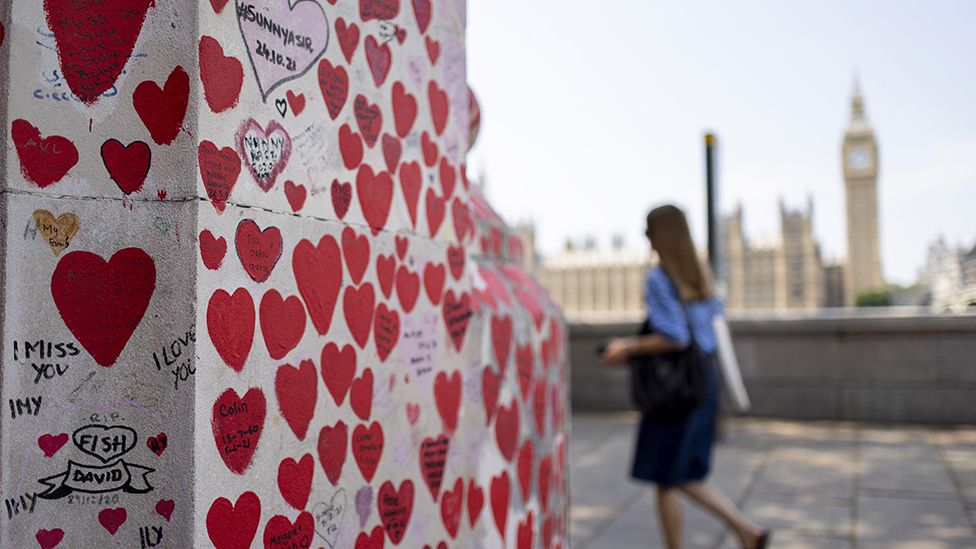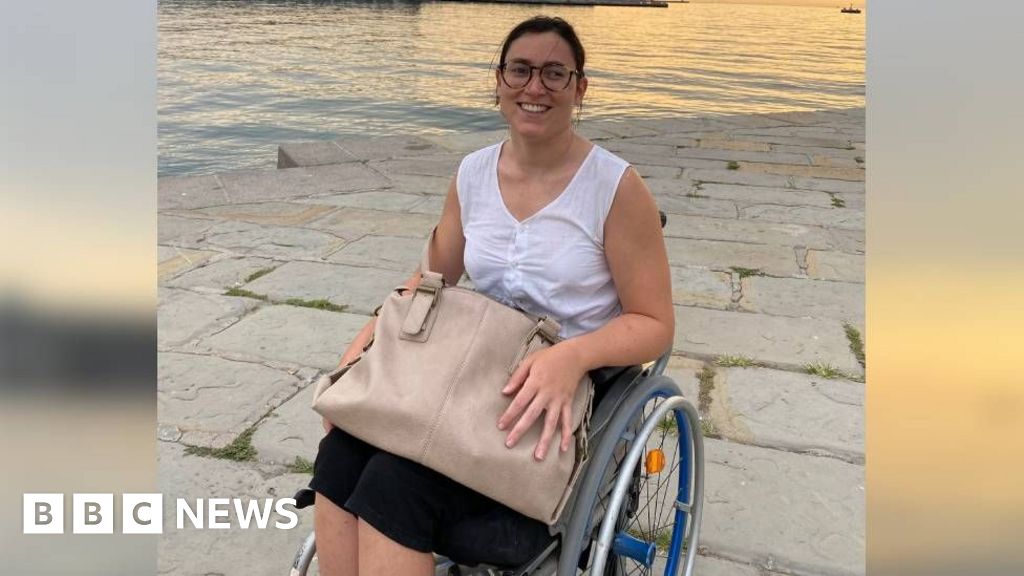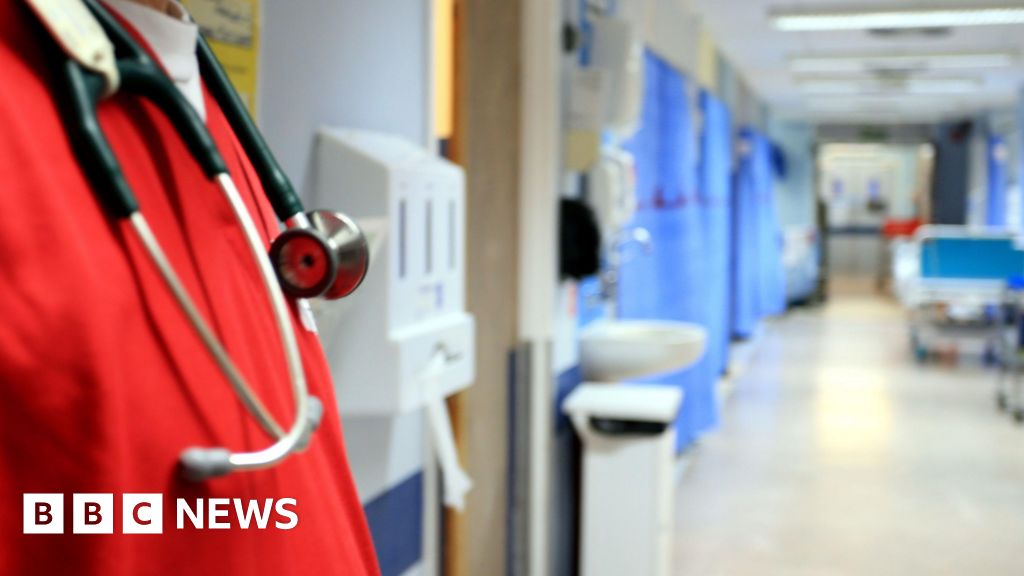 Image source, EPA
Image source, EPA
The first phase of the Covid Inquiry has heard from its final witness.
In total, 69 politicians, civil servants, scientists and other experts have been asked about the UK's planning for a pandemic and the state of the healthcare system when Covid struck.
Baroness Hallett and her team will now write up their findings, with an interim report expected in 2024.
Here are six questions which they might try to answer, based on the past six weeks of evidence and testimony.
Too focused on flu?
The inquiry heard that much of the planning for a pandemic was based on a 2011 document drawn up in case there was an outbreak of a new, more deadly form of influenza.
Former Prime Minister David Cameron said that "group think" meant the government did not properly consider the risk of other viruses, with different rates of transmission and other characteristics.
"This is so important - so many consequences followed from that," he said.
Typically, health authorities do not try to contain seasonal flu - instead relying on antiviral drugs and the flu jab, which could be adjusted to tackle a new pandemic form of the virus.
Image source, EPA
Image caption,Former Prime Minister David Cameron admitted it was a "mistake" not to consider different types of disease during pandemic planning
Other witnesses, including Dame Jenny Harries, the chief executive of the UK Health Security Agency (UKHSA), appeared to contradict Mr Cameron, describing the government's flu plan as "actually pretty good".
Matt Hancock, former health secretary, meanwhile, said the bigger, more damaging mistake was the widespread assumption that Covid could not be stopped or contained when it started to spread.
He said authorities were too narrowly focused on planning for the fallout, such as "can we buy enough body bags?".
"That was completely wrong," he added.
Lessons from Asia?
Other countries managed more effectively to suppress the initial wave of Covid than the UK, reducing the number of deaths and - in some cases - avoiding strict lockdowns.
Witnesses, including former health secretary and current Chancellor Jeremy Hunt, told the inquiry that the UK did not learn lessons from Taiwan, Singapore and South Korea, which had seen earlier outbreaks of two other coronaviruses - Sars and Mers.
In those countries, faster contact-tracing and quarantine policies were subsequently deployed to promptly isolate cases and clamp down when Covid first emerged.
In the UK, the civil service had previously run a mock-up training day - codenamed Exercise Alice - in 2016, in preparation for a major outbreak of the Mers virus.
But the inquiry heard many of its recommendations, including advice to scale up testing capacity and examine different options for isolation, were not followed through.
Prof Dame Sally Davies tells the Covid inquiry "it wasn't just the deaths, it was the way they died".
Did earlier austerity policies inflict damage?
Another major theme was the strength - or resilience - of the healthcare system when Covid emerged in 2020.
England's former chief medical officer, Dame Sally Davies, was heavily critical of the state of the NHS at the time of the outbreak, saying it had been "divested" - with fewer doctors, nurses, beds and ventilators than similar countries.
Academics Sir Michael Marmot and Clare Bambra produced a report stating that poorer regions and ethnic minority groups were disproportionally affected by a decade of austerity policies, with the UK entering the pandemic with "depleted" public services and rising inequality.
Giving his evidence, George Osborne, who was chancellor from 2010 to 2016, said he "completely rejected" that description.
"If we had not had a clear plan to put the public finances on a sustainable path, then Britain might have experienced a financial crisis [and] would not have had the fiscal space to deal with coronavirus when it hit," he argued.
What about the impact of Brexit?
From 2018, government departments were being asked to step up planning for a so-called 'no-deal Brexit', under the codename Operation Yellowhammer.
According to documents seen by the inquiry, a number of internal 'workstreams' in the Department of Health related to pandemic planning were therefore paused, or slowed, as staff were moved and other tasks prioritised.
That paused work included plans to better prepare the adult social care sector for a severe influenza pandemic.
The Pandemic Flu Readiness Board, a cross-government body made up of civil servants from across Whitehall, did not meet for a whole year up to November 2019 because their work was "reprioritised" to plan for leaving the EU without a trade deal.
Image source, EPA
Image caption,Ms Sturgeon said pandemic preparation work suffered because planning for a no-deal exit from the EU was prioritised
Scotland's former first minister, Nicola Sturgeon, told the inquiry that the Scottish government was "not at all happy" about having to divert "time, energy and resources" in this way.
But Conservative cabinet ministers Michael Gove and Oliver Dowden, both said that no-deal planning had increased staffing, compelled departments to work more closely together and secured supply chains for medical supplies.
Additionally, Matt Hancock claimed that work on a no-deal exit was instrumental in preventing the UK running out of some intensive care drugs at the peak of the first wave of Covid.
Better front-line planning?
The inquiry also heard moving evidence from the families of some of those who lost their lives to Covid.
Watch: Bereaved families express their sense of loss in a film shown to the inquiry
Anna-Louise Marsh-Rees's father, Ian, contracted the virus while being treated in hospital in Abergavenny for a gall bladder infection.
Jane Morrison spoke about the loss of her wife, Jacky, who died in hospital in Dundee after being admitted for another unrelated condition - jaundice.
Groups representing bereaved family members said poor infection control was a "glaring flaw" in hospital planning.
They also described the handling of funerals - and how they were conducted during the pandemic - as traumatic, with relatives often unable to say a proper goodbye to loved ones.
Image source, Reuters
Image caption,A deserted street in Leicester in July 2020.
Why wasn't a lockdown planned for?
Witnesses described national lockdowns as the most "extraordinary" policy of the pandemic.
The political decisions which led to nationwide lockdowns will be explored in detail during the inquiry's second phase in October.
Already though, we know a strict lockdown - with widespread school and business closures - was never planned for in advance.
Matt Hancock said there was "no prep for how to do one, no work on how best to lock down with the least damage".
England's chief medical officer, Sir Chris Whitty, suggested it would have been near impossible for scientific advisers to plan in advance for something so radical without being asked to by a senior politician.
The inquiry team will try to answer why - given it is the government's job to consider these things - the longer term impacts of lockdown were not properly thought through before 2020.
You can follow Jim on twitter and threads.
Watch on iPlayer: Jim Reed looks at the key moments from the first part of the Covid inquiry.
Related Internet Links
The BBC is not responsible for the content of external sites.
 (1).png)
 1 year ago
12
1 year ago
12













